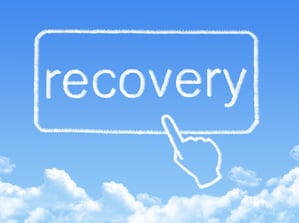 Once confined to the realm of huge conglomerates, recent advances in cloud technology have put digital disaster recovery within reach of small businesses across Australia and the rest of the world.
Once confined to the realm of huge conglomerates, recent advances in cloud technology have put digital disaster recovery within reach of small businesses across Australia and the rest of the world.
However, despite this newfound accessibility, many companies do not have an effective process in place that will allow them to continue operating in the event of an unexpected disaster.
This could be a costly oversight, especially since Australia's tempestuous climate means there are many factors outside a business owner's control that may affect a company's ability to function properly. These external forces range from floods, fires, earthquakes and other natural catastrophes, but might also be caused by human error.
Establishing - and sticking to - a comprehensive recovery plan might seem like an expensive and time-consuming endeavour, but it's absolutely worth the investment. Doing so allows you to get your business back up and running as quickly as possible following the days of the disaster. So, how can you use the cloud to achieve your disaster recovery goals?
Communications
 |
By installing a cloud-based phone system, not only are you getting a versatile communications system, you're also buying peace of mind knowing that your company will be able to bounce back should anything unexpected occur. Taking snapshots of your entire communication network every 30 minutes - including voice prompts, call recordings, voicemail and configuration files - Fonality's Live Backup Server (LBS) is your number one asset in reducing down time when a disaster strikes.
The fail-over time from your primary system to the LBS typically only takes two minutes. This speedy transition ensures you can continue to provide your customers with quality service, even in difficult conditions.
Data backup
In years gone by, physical backups on tape drives and, more recently, external hard drives stored offsite, were the only ways business owners could reliably keep all their necessary documents safe. However, the cloud computing now provides companies with the ultimate disaster recovery solution.
By storing all of your business' important data in the cloud, you'll always be able to access all your files regardless of what happens to your physical office. Make sure you schedule (or automate) backups at regular intervals, and take the appropriate measures to ensure your data is properly encrypted and secure.
The cloud is an indispensable tool for any company looking to establish a disaster recovery plan. How will you leverage this technology to benefit your company?


